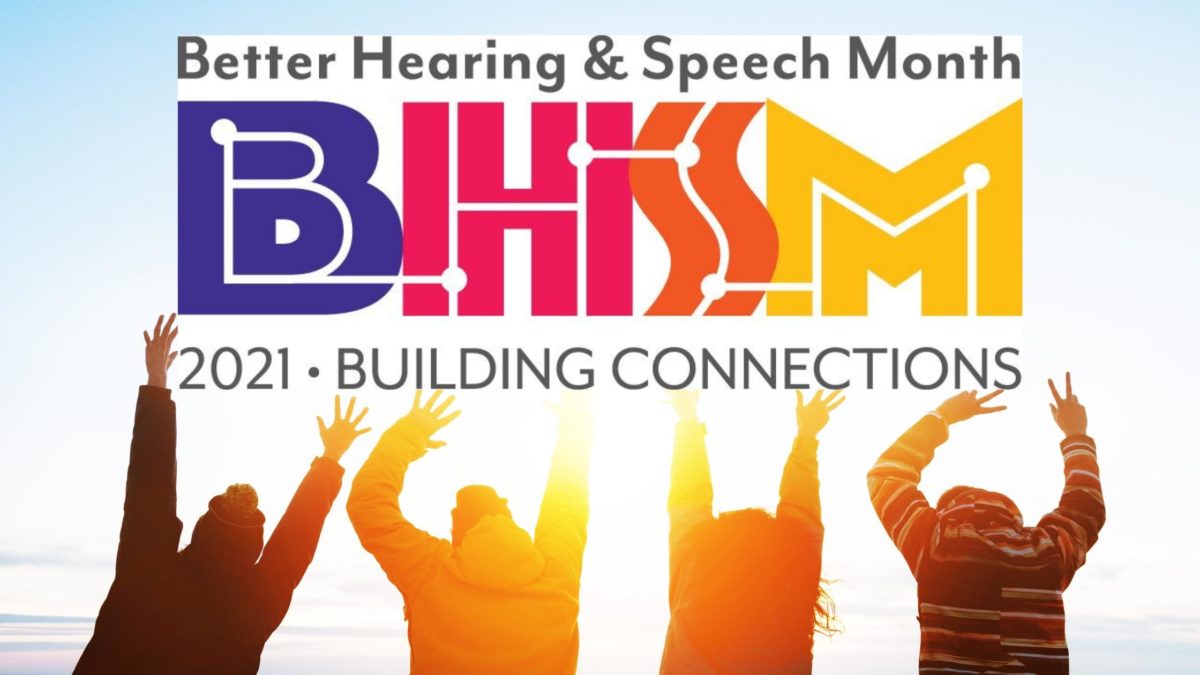There are currently 48 million people in the US dealing with hearing loss and this number is only expected to grow. Each May is Better Hearing and Speech Month and is a call to action by the American Speech-Language-Hearing Association (ASHA) to raise awareness and action around treating these devastating disabilities.
This year’s theme is “Building Connections” and is meant to remind us of the importance of connection, despite communication disabilities through an isolating year in a pandemic. Many of us are struggling to connect to people in a world where in-person connection can be dangerous or even deadly.
For those with speech-language and hearing issues, the effects can be compounded, however, with detection, and treatment, the effects of hearing loss can be much less severe.
Detecting Hearing Loss
One of the greatest issues with hearing loss is that many don’t even know that it is affecting them. Sensorineural hearing loss occurs when the tiny hair-like cells of the inner ear become damaged or destroyed due to noise exposure, head trauma, infection, old age and more. The inner ear cells transmit sound information to the brain, so as this slowly occurs our brains receive less and less information. Often this occurs too gradually to even detect. Many don’t even realize they can’t hear the sounds of birds or the wind blowing the trees unless someone else points it out. In many cases, someone won’t diagnose their own hearing loss until they struggle to hear, even in the most ideal of situations.
Avoiding Dealing with Hearing Loss
There are many factors that go into avoidance of treatment. Part of this is denial and is an associated stigma of old age or of being disabled. On average it takes people seven to ten years to treat their hearing loss and by that point, many of the communication issues associated with hearing loss have progressed to a devastating point. Undoing the stigma of hearing loss is one of the major goals of Better Hearing and Speech Month. For those who avoid treatment in fear that hearing aids will make them look old, it is important to note that pretending to hear or having to ask people to repeat themselves, more often than not presents as the stereotype of old.
Hearing Loss Affects People of All Ages
While hearing loss is associated with old age, due to a world that continues to grow louder and louder a new generation’s hearing is at risk due to noise-induced hearing loss. The Center for Disease Control (CDC) reports that about 40 million US adults aged 20-69 years have noise-induced hearing loss. This is due in part to the use of headphones and earbuds. Now, with a seemingly endless ability to stream audio and video directly into the ear canal, a younger generation is inflicting unchecked harm to their hearing ability.
Know the Signs
It is important for people of all ages to check their hearing regularly. The sooner you detect an issue, the sooner you can treat it and slow the impact of potential years of compromised communication with hearing loss. If you find yourself asking others to repeat themselves more often than not, then make sure you schedule a hearing test as soon as possible. It is not just worth waiting. Other symptoms include:
- turning up the TV, phone, or stereo loudly just to hear, while others complain it is too loud
- Struggling to hear a conversation in a noisy setting
- Ringing in the ear, otherwise known as tinnitus
- Seeming distracted, confused or disconnected from social interactions.
This May, Do it Today!
Don’t let these red flags of hearing loss go ignored. Treating your hearing loss with hearing aids can help you connect to family, friends and co-workers and help you continue to build these relationships through the years. Use this May to act today and schedule a hearing test to protect the quality of your life and your future.

